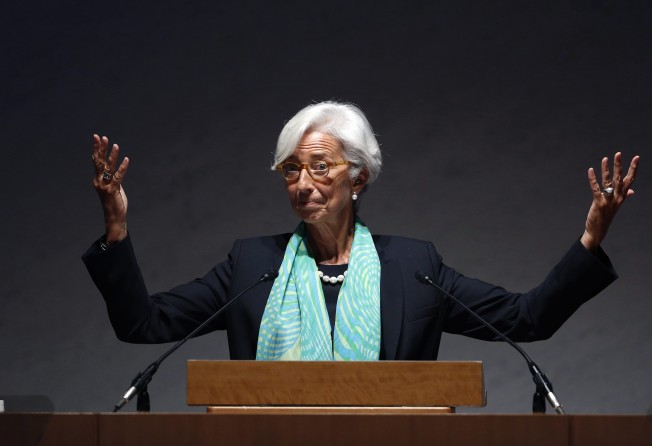IMF gives Beijing room to manoeuvre with delay on yuan decision
Cary Huang says fund may be allowing China more time to meet currency requirements or to agree to further financial reforms before inclusion

While International Monetary Fund chief Christine Lagarde has said the question of the renminbi's inclusion in the special drawing rights (SDR) basket is "a matter of when", her staff recently said the answer is still complicated, as they suggested they need more time than expected to consider the matter.
The fund announced on August 5 that it would delay implementing any revisions to the SDR currency basket for nine months, to September 2016, from the previously projected January 1. At the same time, the IMF also claimed the delay would not in any way prejudge the timing or outcome of the review.
Two criteria determine whether a currency can be part of the SDR: its issuing country must be a major exporter, and the currency must be freely usable. No one disputes China meets the first criterion, as the renminbi is the only currency not currently in the SDR basket that meets the export condition. Over the past five years, exports have averaged 11 per cent of the global total. That places it behind the European Union and the US but well ahead of Japan and Britain - the four economies whose currencies currently make up the SDR.
Therefore, a key focus of the current review will be whether the yuan is freely usable. Given uncertainties over interpretation of these indicators and in China's own rules, the recent IMF paper doesn't take a definitive stand. At a time when there are doubts about China's commitment to reform, given the government's recent heavy-handed stock market intervention, that would be all the more valuable.
But the term "freely usable" is tricky. If it is understood as fully convertible, the yuan does not make the grade. China places caps on how much cash its residents may take out of the country, requires foreign companies to do extensive paperwork before bringing large sums in, and limits foreigners to strict quotas for investing in its capital markets. But, as the IMF paper explains, "freely usable" means something else. In theory, judging this ought to be clear-cut. To qualify for the basket, currencies must be "widely used" to make payments in global transactions, and "widely traded" in major exchange markets. Key indicators include a currency's share of official reserves, international banking liabilities and global debt securities, as well as the volume of use in foreign-exchange markets.
The IMF did note lingering concerns, however. Last year, the yuan ranked seventh among currencies as a share of official reserves, behind the four SDR members as well as the Australian and Canadian dollars. The yuan also ranks outside the top five in terms of debt securities and currency trading.
Although it is not a prerequisite, full convertibility would be of great help for the currency to meet the IMF standards. There are two possible reasons behind the IMF's proposal to delay. First, the extension might be designed to give China more leeway to comply with the IMF's requirements and prepare for full inclusion in September 2016. Second, the IMF might use the delay to win pledges from Beijing to implement further reforms before it decides on the yuan's inclusion. It is possible that the IMF's proposal is a reaction to the ongoing government efforts to stem the US$4 trillion stock rout; the IMF might believe the rout could delay the needed reform.
At this critical juncture, the IMF is nudging Beijing to take substantial steps towards making the yuan fully exchangeable.
The ultimate goal is to build a market-based exchange regime and a market-based interest rate system to make the currency fully convertible, and to open up the capital account and the financial market in the world's second-largest economy.
Cary Huang is a senior writer at the Post